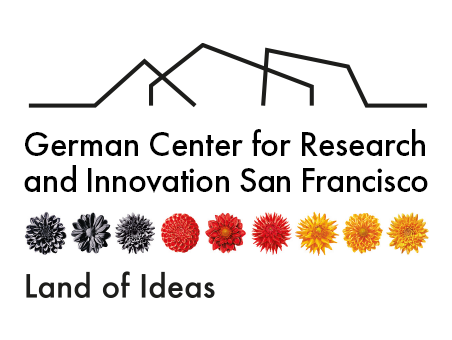Emerging Technology and Geopolitics

This week, DWIH San Francisco hosted an international panel bringing together tech diplomats and representatives from industry to explore the evolving role of diplomacy in an era defined by rapid technological change. The discussion highlighted how nations are rethinking their strategies to navigate the complex intersection of technology, geopolitics, and innovation.
Photos can be viewed here.
The event opened with a discussion featuring moderators Zahar Barth-Manzoori, Director of the DWIH San Francisco, Martin Rauchbauer, co-founder of the Tech Diplomacy Network and Olaf Groth, CEO of Cambrian Futures and Lecturer at UC Berkeley. Reflecting on the need for a link between diplomacy and tech, the panelists noted how emerging technologies like AI, quantum computing, and biotech have not only reshaped industries but also created new challenges and opportunities for international relations.
How Emerging Technologies Converge with Diplomacy
 Brazil: Bridging Academia and Industry
Brazil: Bridging Academia and Industry
Brazil’s Deputy Consul, Mariana Ferreira Thiele, showcased the country’s innovative approach to diplomacy, focusing on its Innovation Diplomacy Program. Since its launch in 2017, the program has established over 70 tech-focused sections in embassies worldwide, including Silicon Valley, to bridge the gap between academic research and industrial application. With strengths in AI, quantum computing, and semiconductors, Brazil is positioning itself as a global player in tech-driven diplomacy.
Germany: Regulation and Innovation
Oliver Schramm, Germany’s Consul General, highlighted Germany and the European Union’s leadership in regulating advanced technologies, citing the EU AI Act as an example of balancing innovation with public interest. Germany’s role as a digital leader in quantum computing, AI, and mobility solutions was also emphasized, alongside the importance of fostering partnerships with global tech hubs like Silicon Valley.
Kazakhstan: A Digital Hub in Eurasia
Kazakhstan position as a geographically strategic country has led it to be at the crossroads of East-West trade for centuries. The Consul General, Nazira Nurbayeva, spotlighted its transformation over the past 30 years following the collapse of the Soviet Union as a key digital hub, driven by initiatives like the Astana Hub, which supports over 1,100 startups. Moreover, Kazakhstan is a supplier of critical materials to world trade. With a unique blend of historical trade significance and modern technological infrastructure, Kazakhstan has attracted global tech giants such as Microsoft and Google. The country’s regulatory agility and collaborative framework were praised as a model for emerging economies.
India: Leading with Technological Aspirations
India’s role in the tech diplomacy conversation was centered on its dynamic and rapidly growing tech sector, coupled with its ambition to lead in AI and clean energy solutions this century. The Indian Consul General, K. Srikar Reddy, emphasized India’s growing partnerships with Silicon Valley tech companies. India’s strong push for initiatives like the Digital India campaign and its growing tech ecosystem have not only fostered innovation domestically but also positioned the country as a crucial player in global tech governance. With a vibrant startup culture and a massive pool of skilled talent, India is leveraging its technological strengths to address pressing global challenges.
How Business Needs to Adjust to Global Innovation
Embracing Multi-Polarity and Pragmatism
Gita Wirjawan, former Indonesian Minister of Trade and a leading voice in Southeast Asia, opened the discussion by highlighting the region’s historical adeptness at balancing relationships between global superpowers like the United States and China. He emphasized Southeast Asia’s pragmatic approach to “multi-polarity with principles,” allowing it to maintain stability while navigating complex geopolitical dynamics.
The region’s modernization depends on achieving electrification levels comparable to advanced economies, requiring significant investments—up to $3 trillion for renewable infrastructure. With a large, youthful population and increasing technological investments, Southeast Asia is poised to become a significant player in AI development. However, Wirjawan warned that growing nationalism, fueled by economic inequalities, could overshadow ethical considerations in policymaking and international collaboration.
Trust and Collaboration in Global Ecosystems
Daniela Caserotto-Leibert, venture capitalist and US Head of Cathay Ecosystem at Cathay Innovation, highlighted trust and collaboration as essential for resilient innovation ecosystems in a fragmented geopolitical landscape. She emphasized balancing globalization with localization, a strategy Cathay Innovation employs across regions like China, Southeast Asia, Europe, and the U.S., focusing on sectors such as energy, mobility, digital healthcare, and financial technology. Caserotto-Leibert stressed the importance of AI and data expertise for competitiveness and advocated for robust localization strategies and partnerships with governments to navigate geopolitical tensions and sustain growth. Her insights offered a roadmap for thriving in complex global and technological environments.

Knowledge Security and Ethical Considerations
Emilia Pasquier, CEO of Swissnex in San Francisco, emphasized the importance of “knowledge security” in balancing openness in research and collaboration with safeguarding intellectual property and critical infrastructure. She highlighted Switzerland’s pragmatic approach to fostering international cooperation while addressing new challenges in knowledge sharing and trust-building amid geopolitical tensions. Pasquier also underscored the role of diverse perspectives, including the arts, in providing unique insights into societal complexities and fostering understanding. Her remarks called for thoughtful collaboration and trust as central to addressing global challenges like climate change and advancing innovation in a rapidly shifting world.
As the world becomes more interconnected yet fragmented, leaders must navigate a delicate balance of pragmatism, ethics, and collaboration. The insights from this panel underscore the importance of cross-sector dialogue and innovative approaches to address the pressing challenges of our time. By fostering trust, embracing multi-polarity, and integrating diverse perspectives, organizations and nations can build a more inclusive and sustainable future.
